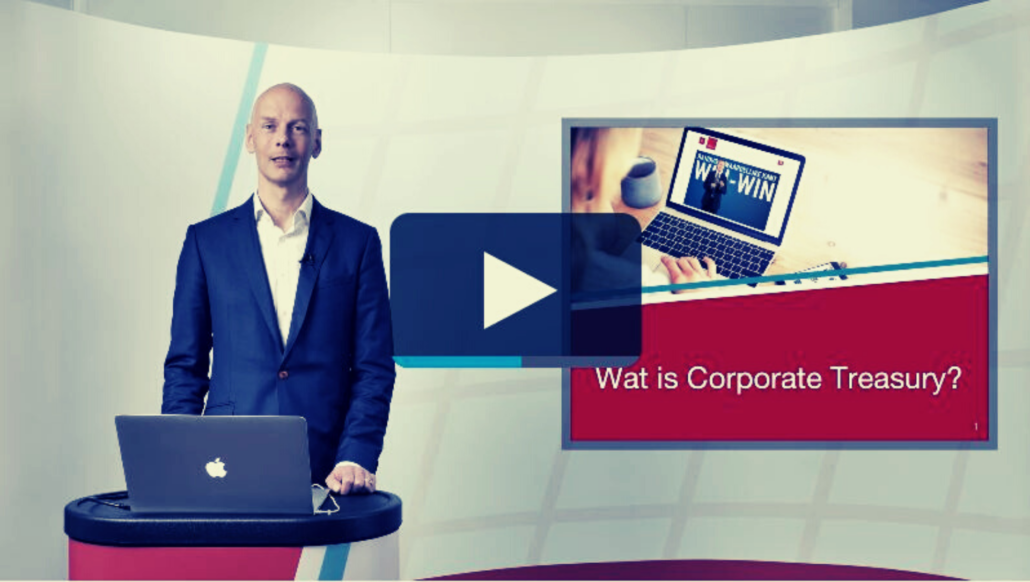22-09-2020 | treasuryXL | Treasurer Search |
Treasurer Search is founded in 2009. Treasurer Search recruits candidates for both permanent and temporary treasury positions in industry, trade, services and non-profit. They recruit treasury professionals of all levels, from young graduates to senior treasury professionals, for positions including corporate treasurer, cash manager, treasury controller, treasury consultant, treasury analyst, assistant treasurer and group treasurer.

AN INTRODUCTION TO

Pieter de Kiewit, Treasury Aficionado, Recruitment Consultant and Owner of Treasurer Search. His market focus is the BeNeLux and Germany, his clients are mainly corporates, non-profit and consultancy organizations. Pieter holds an MSc. in Organizational Science and has over 25 years experience in international recruitment. In many ways he contributes to the Treasury Community by connecting people, companies, education and events.
We asked him 11 questions and 2 bonus questions. Let’s go!
INTERVIEW
1. Can you tell us about Treasurer Search and its mission and vision?
In our vision the professional field of treasury will further evolve and serve a broader group of organizations. It is our mission to listen to treasurers, business and HR leaders and make robust matches taking everybody’s interest into account.
2. What was the main reason to start with Treasurer Search in 2009?
For me as a person, my first professional choice was recruitment. In 2009 I worked in the recruitment industry for 15 years in various roles with two international market leaders. I decided I wanted to recruit in a way that suited my clients, candidates and me best. And that an own organisation was the best structure to do so. Already early in my career I searched group treasurers and liked the job type in so many ways. With the expert combination of both recruitment and treasury, I think we can optimize our added value best.
3. How would you describe your company in 3 words?
Results, expertise, authentic
4. Can you take us with you into your company culture? How would you describe it?
We take pride in what we do, want to show our added value and like our job. We are Dutch, direct, informal and also very much interested in you and what keeps you busy. We are here to stay and want to build long lasting relationships. And we are not afraid to try or even initiate something new.
5. What is, in your perception, the biggest benefit for clients and candidates to work with Treasurer Search?
Understanding the recruitment industry is not hard. What sets us apart from other executive search firms are our treasury expertise which enables us to dig in deeper. And our long lasting relationships. 90% of the candidates we find a position for, we had prior contact with. Over 50% of our revenue is repeat business and we are still growing. Clients like us because we find better candidates, quicker for a fair, market level fee.
6. What has been your biggest challenge since the start of Treasurer Search? And how did you deal with it?
Our USPs are stability and treasury expertise combined with recruitment skills. People who combine these aspects are few. We have taken steps not only forward but also back because new colleagues realized after a while that their motivation did not match the mission of Treasurer Search. By now we have a stable team and cautiously continue moving forward. In recruitment for our own organisation we spent even more time in informing potential colleagues.
7. What is the best learning experience you ever had as business owner of a treasury recruitment club?
The treasury community is an interested and intrinsically motivated group of people. Always willing to brainstorm and join. In order to channel positive input into plans that bring us the results we strive for, we cannot lose focus. That brings best results. Over time I better learned to avoid distractions but are not done learning.
8. In the last 10 years, what are the main differences in the world of treasury & recruitment?
Too many to make a comprehensive list. What strikes me most in treasury is that the professional level of treasurers is going up. Treasurers are nowadays educated at a higher level, better communicators and continue to invest in treasury education. Treasury is getting the platform it deserves.
Also recruitment is constantly changing. The success of a new hire will never be an exact science but we try to avoid risk. New insights and technology in our field resulted in www.treasurertest.com. In my opinion a perfect example of recruitment new style.
9. How do you see the future of the function of treasury?
I hope and expect treasurers will be able to increase their impact. In large corporates they will be able to contribute in strategy, mitigate risk better and save cost. In mid-sized organizations they will find their spot in the CFO team where they are currently not always. The impact of treasury technology cannot be overestimated, one blog is not enough to describe that topic.
10. How important is treasury in times like these? In times of COVID19….
The cliché “profit is an opinion, cash a reality” is currently felt stronger than ever. The treasurer that cannot show his added value in these times might not be in the right position.
11. Tell us, 10 years from now, what does Treasurer Search look like?
Predicting the future in these times is more daunting than ever, we just celebrated our first 10 years… I hope 10 years from now we can still show stability, treasury and recruitment expertise. Furthermore I hope clients who currently do not have a treasurer are happy we found one for them and also many more clients who are not based in The Netherlands enjoy our services.
BONUS QUESTIONS
What makes you happy in your work?
Results. See that my colleagues are happy in their job and help candidates and clients moving forward.
What are you most proud of in your career at Treasurer Search?
That clients call us again because they like the candidate they hired through us before. That candidates are happy in their job we found them, and for a long time. That we created an organization with employees that like coming to work to a job that pays mortgages and children’s shoes. That the treasury community knows us and knows how to find us.











